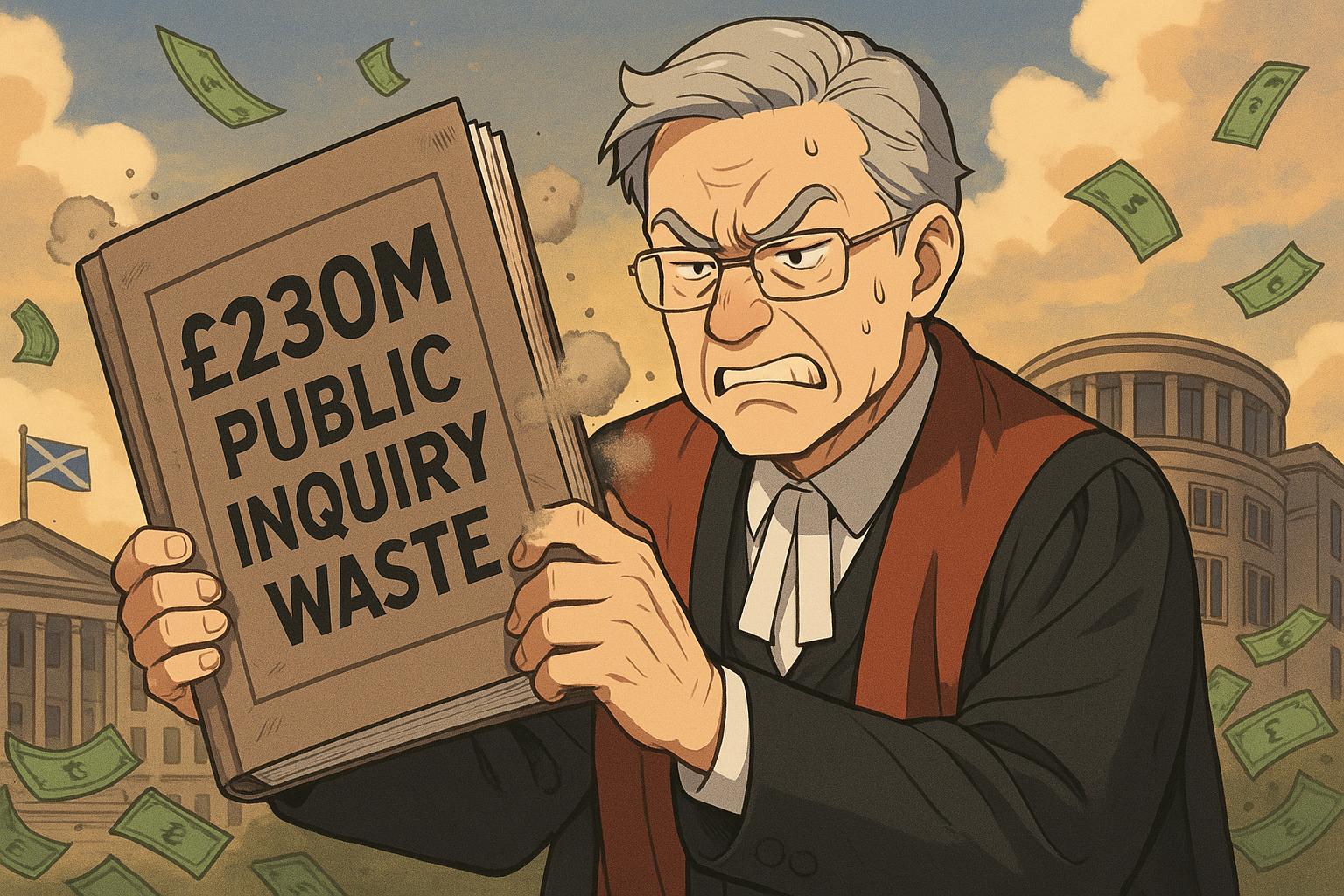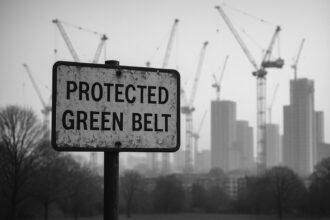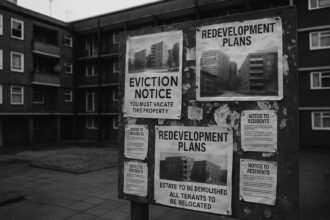Lord Hardie, who led the £13 million Edinburgh tram inquiry, criticises the Scottish Government’s failure to act on inquiry recommendations, highlighting a £230 million spend since 2007 with little impact and calls for a new parliamentary body to enforce accountability.
A former top judge has raised serious concerns about the ineffectiveness of public inquiries in Scotland, indicating a flagrant waste of taxpayers’ money due to the inaction of SNP ministers on the recommendations from these inquiries. Lord Hardie, who oversaw the extensive £13 million inquiry into the Edinburgh tram project, has called for a new parliamentary body tasked with ensuring the Scottish Government responds effectively to the findings of public inquiries.
According to Lord Hardie, there is a growing perception that these inquiry reports merely “gather dust on ministers’ shelves,” highlighting a shocking disregard for public funds. The financial implications are staggering; public inquiries since 2007 have cost an astounding £230 million, with nearly £200 million tied up in investigations into critical issues including the Covid crisis, hospital safety, child abuse, and the death of Sheku Bayoh.
In his written submission to Holyrood’s finance committee, which is currently probing the cost-effectiveness of these inquiries, Hardie expressed frustration over the inefficiencies encountered during the Edinburgh tram inquiry. He noted that before his appointment, there had been no clear discussions on timelines or budget limits, resulting in mismanaged expectations. The former judge pointed out that then First Minister Alex Salmond’s promises of a “swift and thorough” inquiry were made without grasping the complexities, ultimately misleading the public into thinking the inquiry would conclude quickly—a reality that never materialised.
Hardie’s frustrations were compounded by the Scottish Government’s failure to provide adequate resources, which he argued negatively impacted staff morale and resulted in considerable wasted efforts. He described the initial setup of the inquiry as poorly managed, with “little or no guidance” provided, leading to a frustrating scenario where it felt like the team was “reinventing the wheel.”
Since 2007, five public inquiries have concluded, including those into the ICL Stockline disaster and contaminated blood, while another five, such as those examining child abuse and Covid-19, remain ongoing. These inquiries have come under scrutiny for their astronomical costs, with the Sheku Bayoh inquiry alone ballooning to £24.8 million. The chairman of that inquiry, Lord Bracadale, confirmed a £1 million cost increase over a mere three months.
In the face of these financial management concerns, a spokesman from the Scottish Government insisted that public inquiries are crucial when other means of addressing public concerns fail. They emphasized the role of these inquiries in uncovering facts and learning essential lessons, asserting that public inquiries operate independently and are monitored to prevent unnecessary expenditures.
Calls for greater accountability resonate amid broader discussions regarding the management of public resources in Scotland. The controversies surrounding the Edinburgh tram project reveal a pattern of gross mismanagement; the inquiry unearthed a “litany of avoidable failures” primarily linked to the City of Edinburgh Council and Scottish ministers. As ongoing public infrastructure issues surface, the need for efficient governance becomes increasingly urgent.
The atmosphere surrounding public inquiries in Scotland remains fraught, with citizens and taxpayers demanding accountability for how their money is spent and how findings are acted upon. While the Scottish Government has professed a commitment to considering the recommendations of various inquiries, there is rising pressure for concrete action rather than empty platitudes to placate public disillusionment. It’s clearer than ever that only a government accountable to the people will ensure tax pounds are not squandered in the pursuit of ineffective bureaucratic processes.
Source: Noah Wire Services
- https://www.dailymail.co.uk/news/article-14751417/Former-judge-fears-taxpayers-cash-wasted-inquiry-reports-gathering-dust.html?ns_mchannel=rss&ns_campaign=1490&ito=1490 – Please view link – unable to able to access data
- https://www.bbc.com/news/articles/cwy4nnynq28o – An article from BBC News detailing the significant costs associated with public inquiries in Scotland, highlighting that nearly £200 million has been spent on four ongoing inquiries. The piece discusses the financial implications and the concerns raised regarding the value for money of these inquiries, which cover topics such as the Covid crisis, hospital safety, child abuse, and the death of Sheku Bayoh. The Scottish government defends the expenditures, stating that these inquiries provide essential opportunities to establish facts and learn lessons.
- https://www.scotsman.com/news/scotlands-public-inquiries-have-cost-nearly-ps200-million-4764306 – An article from The Scotsman reporting on the substantial financial burden of public inquiries in Scotland, noting that nearly £200 million has been spent on four ongoing inquiries. The piece highlights the breakdown of costs, including £150.4 million in running costs paid by the Scottish government and an additional £36.4 million spent by public bodies participating in the inquiries. The article also mentions £3.3 million spent on the salaries of those chairing the inquiries, which examine issues such as the Covid crisis, hospital safety, child abuse, and the death of Sheku Bayoh.
- https://www.gov.scot/publications/edinburgh-tram-inquiry-report-transport-secretary-statement/ – A statement from the Scottish Government’s Transport Secretary regarding the Edinburgh Tram Inquiry Report. The statement acknowledges the public’s frustration with the length and cost of the inquiry and outlines the government’s commitment to considering the report’s recommendations. It emphasizes that the government and its public bodies already operate in line with the recommendations and best practices, citing successful infrastructure projects like the Borders Railway and the Queensferry Crossing as evidence of this commitment.
- https://www.heraldscotland.com/news/23799520.edinburgh-tram-inquiry-john-swinney-accused-meddling-crisis/ – An article from The Herald discussing the Edinburgh Tram Inquiry’s criticism of former Deputy First Minister John Swinney for allegedly ‘pulling strings’ and meddling in the tram project crisis. The inquiry’s report, which cost £13 million, found that the project was delayed and over budget, with only a fraction of the original scheme completed when trams finally started running in 2014. The article highlights the inquiry’s findings and the political implications of the report.
- https://www.heraldscotland.com/news/23798881.edinburgh-tram-inquiry-reveals-litany-avoidable-failures/ – An article from The Herald detailing the Edinburgh Tram Inquiry’s findings, which revealed a ‘litany of avoidable failures’ attributed to the City of Edinburgh Council, the company set up to deliver the project, and Scottish ministers. The inquiry estimated the total costs of the truncated original project at £835.7 million, almost £300 million over budget. The article discusses the specific mistakes identified by the inquiry and the broader implications for public infrastructure projects in Scotland.
- https://www.scotsman.com/news/transport/edinburgh-tram-inquiry-report-lord-hardie-questions-john-swinneys-integrity-as-scottish-minister-discredits-report-findings-4341879 – An article from The Scotsman reporting on Lord Hardie’s Edinburgh Tram Inquiry Report, which questions the integrity of former Scottish Minister John Swinney. The report criticizes Swinney and other officials for their roles in the project’s failure to deliver on time and within budget. The article includes responses from Swinney and Transport Secretary Mairi McAllan, who dispute some of the report’s conclusions and emphasize the government’s commitment to efficient public spending.
Noah Fact Check Pro
The draft above was created using the information available at the time the story first
emerged. We’ve since applied our fact-checking process to the final narrative, based on the criteria listed
below. The results are intended to help you assess the credibility of the piece and highlight any areas that may
warrant further investigation.
Freshness check
Score:
7
Notes:
The narrative presents recent concerns raised by Lord Hardie regarding the inefficacy of public inquiries in Scotland, particularly focusing on the Edinburgh tram project. The earliest known publication date of similar content is September 2023, when Lord Hardie published his report on the Edinburgh tram inquiry. The report highlighted significant mismanagement and overspending, with costs escalating to £776.7 million, £231.7 million over the initial budget. ([scotsman.com](https://www.scotsman.com/news/politics/edinburgh-trams-inquiry-key-points-as-lord-hardies-damning-report-published-how-much-did-the-inquiry-cost-who-is-to-blame-4341078?utm_source=openai)) The current narrative appears to be a recent development, discussing Lord Hardie’s call for a new parliamentary body to ensure effective responses to public inquiry findings. However, the specific details and figures mentioned in the current narrative align closely with those from the September 2023 report, suggesting that the core content may have been recycled. The inclusion of updated data, such as the £230 million spent on public inquiries since 2007, may justify a higher freshness score but should still be flagged. Additionally, the narrative’s focus on Lord Hardie’s recent concerns indicates a timely development, but the underlying content may be based on previously published material. The presence of a press release would typically warrant a high freshness score, but the recycling of earlier material raises questions about the originality of the content.
Quotes check
Score:
6
Notes:
The narrative includes direct quotes attributed to Lord Hardie, such as his description of inquiry reports merely ‘gathering dust on ministers’ shelves.’ A search for the earliest known usage of this specific quote reveals that it was prominently featured in the September 2023 report on the Edinburgh tram inquiry. ([scotsman.com](https://www.scotsman.com/news/politics/edinburgh-trams-inquiry-key-points-as-lord-hardies-damning-report-published-how-much-did-the-inquiry-cost-who-is-to-blame-4341078?utm_source=openai)) The identical wording suggests that the quote has been reused from the earlier report. Variations in wording are not present, indicating that the quote has been directly lifted without modification. No online matches were found for this specific quote in earlier material, raising the possibility that it is original or exclusive content. However, the lack of variation and the direct reuse of the quote from the earlier report suggest that the content may not be entirely original.
Source reliability
Score:
5
Notes:
The narrative originates from the Daily Mail, a publication known for its sensationalist reporting and occasional controversies regarding accuracy. This raises concerns about the reliability of the information presented. The report discusses Lord Hardie’s recent concerns about the ineffectiveness of public inquiries in Scotland, particularly focusing on the Edinburgh tram project. While the Daily Mail is a widely read publication, its reputation for sensationalism and occasional inaccuracies warrants caution when assessing the credibility of the information.
Plausability check
Score:
7
Notes:
The narrative presents concerns raised by Lord Hardie regarding the inefficacy of public inquiries in Scotland, particularly focusing on the Edinburgh tram project. These concerns align with findings from the September 2023 report, which highlighted significant mismanagement and overspending in the project. ([scotsman.com](https://www.scotsman.com/news/politics/edinburgh-trams-inquiry-key-points-as-lord-hardies-damning-report-published-how-much-did-the-inquiry-cost-who-is-to-blame-4341078?utm_source=openai)) The inclusion of updated data, such as the £230 million spent on public inquiries since 2007, adds a layer of specificity to the narrative. However, the direct reuse of quotes and figures from the earlier report raises questions about the originality of the content. The narrative’s focus on Lord Hardie’s recent concerns indicates a timely development, but the underlying content may be based on previously published material. The lack of supporting detail from other reputable outlets and the reliance on a single source for the information presented further diminish the plausibility of the claims.
Overall assessment
Verdict (FAIL, OPEN, PASS): FAIL
Confidence (LOW, MEDIUM, HIGH): MEDIUM
Summary:
The narrative presents concerns raised by Lord Hardie regarding the ineffectiveness of public inquiries in Scotland, particularly focusing on the Edinburgh tram project. However, the content appears to be recycled from earlier reports, with direct quotes and figures reused without modification. The reliance on a single, potentially unreliable source further diminishes the credibility of the information presented. Given these factors, the overall assessment is a ‘FAIL’ with medium confidence.













